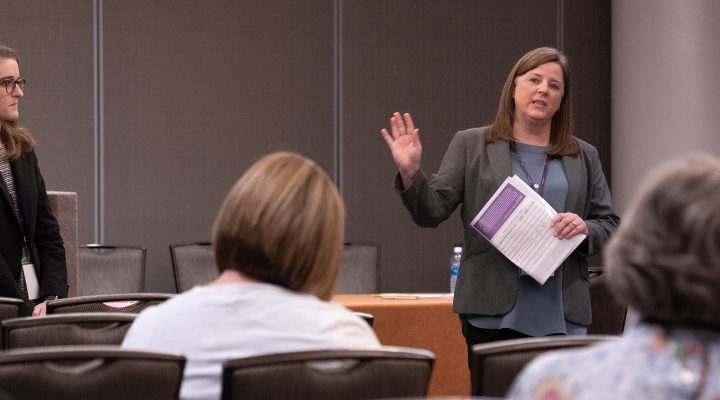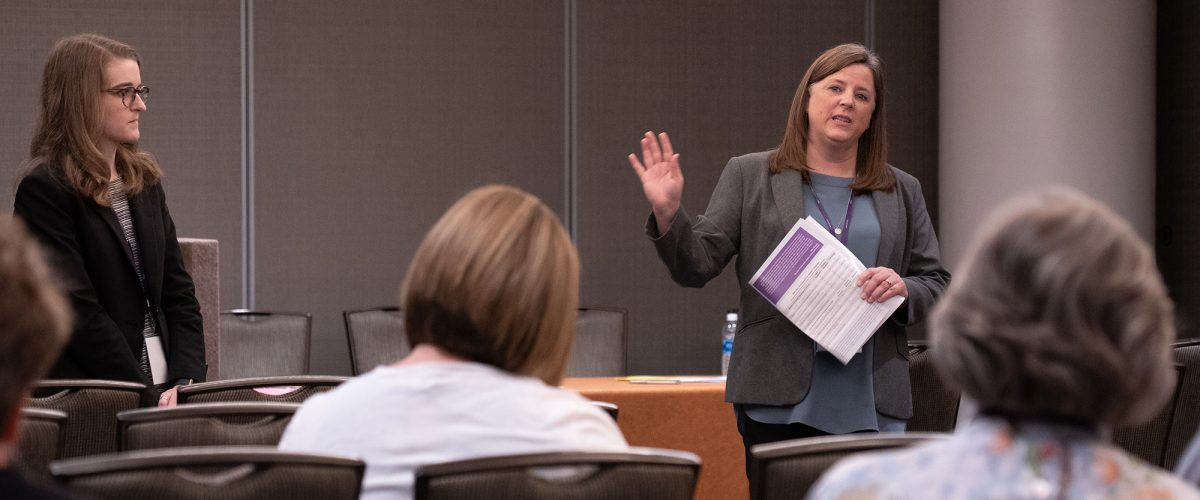While women face well-known and painful obstacles to ministry, the little, daily slights can be just as hurtful and draining, Laura Ellis said during a June 29 workshop hosted by Baptist Women in Ministry.
“The smaller but not-insignificant microaggressions really add up and become not just annoying, but completely debilitating,” said Ellis, project manager of BWIM’s new State of Women in Baptist Life report. She and Executive Director Meredith Stone highlighted sections of the document during the Cooperative Baptist Fellowship’s 2022 General Assembly in Dallas.
Ellis identified the “boulder-sized” obstacles women face in ministry settings or in trying to answer their callings, including outright opposition to women’s ordination or elevation to senior leadership. The report found 86% of women surveyed still encounter such barriers, while 59% said they are “overlooked and silenced” in ministry settings.
But the so-called little things, Ellis said, over time amount to serious burdens. These include men getting credit for women’s ideas (57%), being patronized by peers and parishioners (45%) and being interrupted or talked over by men (67%).
To illustrate the damage inflicted by microaggressions, Stone asked women attending the workshop to read aloud survey respondents’ comments contained in the report.
To illustrate the damage inflicted by microaggressions, Stone asked women attending the workshop to read aloud survey respondents’ comments contained in the report.
“After my first sermon, a congregant asked my husband if he wrote my sermon,” one woman read. “When I begin to mention making leadership and decision-making equitable or make any statement in opposition, I am immediately interrupted, shot down or called disagreeable,” read another.
The survey included more such experiences, including “My clothing choices have been commented on as a woman — why I wear pants, the times I choose to wear a skirt or dress are commented on, type of skirt I wear, etc.” and “(My male co-pastor) does not get gift cards for his birthday to get a haircut; I do. He doesn’t have people comment about what he’s wearing under his robe; I do. He does not get encouraged to be more nurturing; I do.”
“These are really painful to read,” Stone said.
One woman raised her hand to ask if there is a guidebook to help women respond to such toxic patterns of behavior. Stone said that would be challenging because these insulting moments often occur out of the blue.
Take “mansplaining,” in which men talk down to women in patronizing ways. “It’s not really something you notice until you notice it, then you can’t not notice it,” she said.
But the goal of the workshop was to spring from the report into actions that can help women thrive in ministry. These could include examining theology for sexist concepts, embracing gender-inclusive language in church settings and encouraging the leadership of women and girls, Stone said.
Another is to discuss the climate of sexual harassment and assault in the church, especially given that 25% of survey respondents said they had experienced one or both of those behaviors in ministry settings.
“If we can change some of the cultural elements in our churches, this can be the way to move forward,” Stone said.
Related articles:
While the SBC shuns women as preachers, CBF celebrates a new generation of women as preachers
Annual report on Baptist women in ministry finds some gains but serious losses due to COVID


